Hello and welcome to Episode 24 of What China Wants, the second podcast looking at the impact of China’s recent National Party Congress. Today we are looking at the economy.

We welcome back to the podcast the esteemed China economist George Magnus, author of Red Flags: Why Xi’s China is in Jeopardy. George has been keenly watching recent events unfold at the economic level, and not just at Congress.
Some highlights from our discussion:
Congress showed that although economics remain important to the Party, the focus is now more about security and politics.
Most of the technocrats and economic experts of the previous leadership regime have stepped down, and been replaced by people whose loyalty to Xi is more important. This may have an impact on the economy moving forward.
Despite the impact of zero-COVID and its structural issues, the Chinese economy is likely to grow this year. But the figure of 3.9% growth for Q3 2022 is probably not the real figure given the way that these GDP figures are gathered.
The fall in value of the RMB vs the USD is probably not a deliberate policy to weaken the Chinese currency, but probably a combination of a strong USD and the drip of capital outflow from China.
You can also listen to the podcast on Apple, Amazon, or Spotify.
As always please do share, comment, and subscribe. We’ll be back next week with more What China Wants.
Many thanks for listening.
***
Stewart Paterson: Hello everyone, and welcome back to What China Wants. My name is Stewart Paterson, and I am here with Sam Olsen, as always. We are very pleased to be joined today by George Magnus, who is an old friend of the podcast, to discuss China's economy and its outlook.
For those who do not know George, he is the author of a tremendous book, Red Flags: Why Xi’s China is in Jeopardy which looks at the economy that Xi Jinping inherited and what the challenges are that the economy faces. He is also an Associate of the China Centre at Oxford University, and a fellow at the School of Oriental and African Studies in London. So welcome, George, and thank you so much for your time.
George Magnus: Thank you Stewart, it is good to be back.
SP: Well maybe we can just kick off, George, with the obvious. We have China's third quarter GDP data, the headline number. I think it surprised people to the upside, actually, at 3.9% for real growth year-on-year. I was wondering, do you believe this number? And how do you interpret it and the breakdown of the numbers behind it?
GM: Well, I thought you were going to ask me about why wasn't it published on schedule? Obviously, there was a little cottage industry that cropped up during the week of the 20th Party Congress to try to understand why so many economic statistics had been suspended.
However, as you say quite correctly, it did come out perhaps a few days late. I think it was a little bit surprising. I am used to the idea that actually, many of these high-level economic series can be subject to manipulation. I think the numbers, particularly the year-over-year numbers, looked a little bit on the high side to me. There could have been some fairly typical problems surrounding the estimation of the deflator, but I do not want to get into the sort of dirty weeds about that as it is not an uncommon phenomenon.
There were also some inconsistencies I thought, really between some of the data on which the GDP numbers were based, and some of the more higher frequency numbers which are published on economic activity. We are not talking about massive differences in estimation here, but perhaps of the order of somewhere between 0.5-1% on the year-over-year rate.
I think the key thing really though, my takeaway really, was that whatever the quirkiness of the specifics of the numbers, it looks as though, seasonally-adjusted, there was quite an important bounce back in the third quarter from the second quarter when obviously the Shanghai and other lockdowns had depressed economic activity. So I think that sort of directional change in the economy was probably correct as far as it goes.
But by the same token, if you break down as far as we can do the kind of monthly series, then a lot of that bounce back took place in July and August, and September was rather weaker again, suggesting that the carryover effect onto the fourth quarter might be weaker as well, particularly since we know that zero COVID is going to be with us for some time yet. So the bottom line really is it may have been a funny number, not quite consistent with what we think we understand is going on in the economy; it got the direction of change right in the quarter, but maybe it is exaggerating a little bit.
SP: Yes, and just to chip in on the sort of longer-term time series for GDP is that if we believe the 2020 and 2021 numbers, as well as these, we are looking at a Chinese economy that is potentially, on official data, in real terms 13-14% larger than it was pre-COVID. That breaks down as you know, the spectacular, but perhaps mythical 2.2% growth in 2020, followed by a very sharp rebound of 8% plus in 2021. I am just wondering, as to my mind at least, that does not really gel with what people like to call the 'lived experiences' of your average Chinese citizen that their economy is now 14-15% larger than it was in pre-COVID times.
GM: Yes, this obviously speaks to a number of different interesting issues. One is the perennial issue that I think people raise about whether the GDP numbers or the estimate of GDP in China, actually is systemically overcooked. That has an A and a B. The A in that kind of statement is that the numbers are just exaggerated, and they do not add up to for example, the summation of the 32 provinces' economic statistics. The B is that it may be a kind of artificial number anyway, in the sense that, for us and for actually most of the world, GDP is a sort of afterthought.
We add it up once we know how much businesses spent, how much consumers spent, how much government spent, exports and imports levels, and so on, which is a very, very typical kind of national income accounting concept. Whereas in China, you start off with a GDP target, and you hit it. Regardless, you have to hit it because the Party says it has to be hit. Obviously, it has not been hit in 2022, and it was abandoned in the COVID year 2020. But generally speaking, that's what happens, even though they have abandoned the setting of targets for the Five Year Plan, at least explicitly, there are implicit targets as well. But explicitly, they have reserved the right so-to-speak to set targets on an annual basis in the Work Report at the end of the year, and at the National People's Congress. The idea basically, is you start off with a GDP target, and if you can't hit it, then obviously local governments step in to spend money and create output or demand in order to hit the target.
So nobody really knows actually how much it is although of course we are now beginning to learn a lot I would say. Perhaps that is a better way of putting it, we are beginning to learn a lot about how much uncommercial GDP actually enters into the overall GDP numbers. So I think that this idea that GDP is $17 trillion on official numbers, it's X percent, as you said, larger than it was pre-COVID. It is not borne out by kind of touchy feely analysis, and it is probably not quite right. It is the number that we have to work with, though, so that is what it is.
SO: So George, the RMB has been under pressure for a while now, as the Dollar has been so strong all year. It has been strong against other currencies as well, it has been strong against the Japanese Yen and the South Korean Won. But what are your thoughts about how low it could go? Also, is it a deliberate policy to weaken the exchange rate, or has this all been driven by capital flight?
GM: Well, I think regarding the weakening of the RMB this year, obviously, everybody understands that most currencies have gone down against the US Dollar because the US Dollar has been incredibly strong, with the Fed, tightening monetary policy etc, etc. However, I do not think that's the only thing that has been driving the RMB. Earlier in the year, it may well have been because it was falling against the US Dollar, but it was pretty stable, or indeed actually even slightly higher against the basket which the People's Bank of China maintains, a CFA ETS index.
But of late, actually, that looks slightly different. So it has been dropping against the US dollar, I think we were up at about 720-something or other recently, but also against the basket of currencies as well. That's been accompanied by a kind of quirky thing that a number of FX analysts have spotted, which is that the fix which the People's Bank of China announces, typically has led the movement of the currency, whereas in recent weeks, the fix actually has been following it down against the US Dollar.
So, what has been going on? It is opaque, obviously. It looks as though there has been higher capital flight or unrecorded capital transactions out of the country this year than would be estimated from the balance of payments statistics. Certainly earlier this year, we know that there was quite a lot of portfolio capital leaving China, particularly bonds, but also equities. That may not have been the case as heavily during the summer and early autumn. But I suspect that it may have resumed, and certainly in the wake of the 20th Party Congress. So I do not think that the People's Bank of China - obviously it is not an independent central bank, it takes orders from the State Council, and so on - I do not think there's a deliberate policy of currency devaluation going on. It would be material if that were the case. Additionally, because most of the big names in economics and finance in China, are going to change over the next several months, including at the People's Bank of China, it will be of interest to know which individuals are going to fill the senior positions, and whether that might have any bearing on currency policy.
But I suspect that for the most part, there is still probably some downside in the currency related both to the Dollar's own performance, which is functionally related to monetary policy in Washington, but also to the kind of, I would say haemorrhage is perhaps a strong word, but the drip feed of capital outflow as well or unrecorded capital outflow, we may be getting a little bit closer to at least an interim bottom. The RMB has been through a number of different 2-3 year cycles in the last 12 or 15 years, and I think it is probably about 12-15 months into this kind of downcycle. So, it may have a little bit further to go, it may get up to 750-760. But I suspect it probably, at least for the time being, given what we know, I do not think it is going to go much further.
SP: That is interesting, George, thank you for that. You mentioned the Congress there, and obviously that is a Party show rather than a governmental show, and there is a wafer-thin separation between the two. We will have to wait for some of the technocratic appointments to take place, but from your reading of the Congress with regards to the economy, did you see anything that led you to believe that economic growth, as an objective in its own right, might start to climb the to-do list? Or was your interpretation very much that social harmony, equality, and socialist principles, were still very much at the forefront of Xi Jinping's agenda and that therefore the outlook for the private sector remains sort of somewhat clouded? How did you read it?
GM: Well, you will not be surprised if I give you a slightly nuanced response. I do not think it's the case that they do not think the economy is important. Of course they do, ‘they’ being the Party. But I think most people have come away from this, reading the runes that there has been a shift in emphasis, an important shift in emphasis, towards security and away from the economy, Xi Jinping's speech to the Congress, the opening speech on the first Sunday, was peppered with a large number of references to security, military struggle, and similar kinds of words, particularly with a very strong focus on external relations and threats. Obviously the United States is never mentioned by name, but references were made to 'threats from outside' and 'people trying to contain us' and this kind of thing.
So this, I think, came out very strongly as the main kind of message really, of the Congress. Inevitably, there are lots of references to the economy as well, to scientific and technological development, to common prosperity, to quality of life, which is part of the sort of central contradiction which the Party changed in 2017. So yes, I think the economy is important, but I think the politics are more important and the external, I would say - not necessarily always military, because sometimes it's not always military - but certainly external relations, threats and strategy seem to be taking pride of place.
I think what worried me, and also what worried probably a lot of financial markets as well, subsequently, to pick up on a theme that you mentioned when you talked about the technocratic positions. I think what worries me about this is that pretty much all of the people that were nominated to the Central Committee and the Politburo Standing Committee to take the place of people who were either stepping down because of age limits, or who were in the 'out' crowd, is that they are all Xi Jinping loyalists. There are no technocrats among them to speak of, and almost a dozen people from Li Keqiang to Liu He, to Yi Gang of the central bank, and perhaps about seven or eight other people who have been at the forefront of economic policymaking, financial decision making and regulation for the last years will all be gone.
They will be replaced by much more sycophantic supporters of Xi Jinping, certainly not technocrats or necessarily experienced in economics and finance and central government. So does it make a difference? You could argue that even the 'good guys' who are stepping down could not really get their way if they wanted to, with Xi Jinping because he is the 'Fat Controller', i.e. right in the middle that nobody dares to object or to oppose him. And maybe, you know, surrounding himself with yes-men just means that bad decisions get implemented much more effectively. So we will see. I think it is a retrograde step, and I think that the fact that tech stocks sold off pretty heavily, the fact that the market generally, the stock market has been pretty poor, the fact that the currency has been weak, since the Congress, are indicative of the fact that I think that the markets did not really like what they are sensing from what they gleaned to be possibly the outlook or more subdued outlook from the Congress.
We do not know anything about policy, and we won't, typically, until late this year with the Work Report, and then maybe not even until the NPC - the National People's Congress - in March of 2023. It's not auspicious, let's put it that way.

SP: George, it is interesting that you mentioned the capital market reaction because obviously in the very short term markets in China sold off very aggressively. But that was just in a way a reacceleration of a trend that has been in place for a couple of years. Now, really, I suppose you could argue it started with the property stocks and the 'Three Red Lines' policy, and then spread to tech and elsewhere. Clearly, interest rate differentials that have favoured the bond market have disappeared as US monetary policy has tightened and the US yield curve has somewhat normalised.
Technocratic excellence in government was always one of the core planks that China bulls would fall back on as the view that "well we might not like the sort of authoritarian state or the lack of rule of law, but at least we know that policymakers are technocratic and, because of the lack of an electoral cycle, they can take a longer term view and can tackle problems without ideological bias, as it were". All that seems to have been somewhat shot to pieces doesn't it, in the sense that China has lots of long-term problems which simply have not been tackled, like the malinvestment in infrastructure, the degree to which they sat and did nothing on the housing bubble for 10 years, until arguably, it was too late to have a soft landing. And now we actually have the personnel being removed and being replaced with perhaps slightly more ideologically-driven people.
I suppose foreign participation in Chinese mainland capital markets has always been fairly limited, and is now apparently reversing, that is the current trend. But there must be a ramification for Hong Kong isn't there here, as an entrepot for trade, although a far less important one for trade, because China's infrastructure along the rest of the coast is so much better. But for capital, does private foreign capital, have a role to play in Xi Jinping's, third term? And if not, or if it's a very much subordinated one, what does that mean for Hong Kong?
GM: Well, I think that for the time being, at least, notwithstanding all of the things that we've spoken about, and some that we have not really touched on yet, which impinge on the kind of new governance. I say 'new governance', well it is new, but it has been accumulating really, since Xi Jinping came to power, so not so new anymore. But obviously, the governance regime has taken a very sharp, Leninist turn, both politically and in terms of economic policy as well. So I do not think that is going to change. That is a feature now, and quite brazenly so and openly so.
It is also something which I think you are right to point out that there are a lot of companies, both inside China and doing business with China from the outside, which were prepared to put up with many CCP idiosyncrasies over a long period of time, because of the revenues, the profits, the growth of the market, and comparative ease of doing business and so on. That is clearly in the mix at the moment, isn't it? If you look at the business surveys, for example, produced by the EU Chamber of Commerce and American Chamber of Commerce, it is quite clear that companies are scratching their heads now wondering about what to do with their business in China, and what to do with future investment in China. So I do not think that is going to change. I think that is really perhaps more than a straw in the wind at this juncture.
Having said all that, it is quite clear that for the moment, at least, the Chinese government is very welcoming of foreign capital coming into China, particularly into the financial sector. As far as I am aware, at least many of the big banks and asset managers in the US, the UK and elsewhere are still viewed as agencies, which can actually bring know-how, capital, dollars, and expertise into those areas in the Chinese financial system where they are perhaps somewhat lacking in competitive ability. So asset management, investment banking, and that kind of thing, particularly if China has got a big issue ahead of them in terms of intermediating savings for the purposes of increasing pension and other kind of social benefits and so on in the future. These are things which obviously foreign financial companies can actually help them to do.
To that extent, I think that - although I am not an expert on Hong Kong - Hong Kong's financial role is as a conduit for capital into China. Obviously, it is a conduit for capital out of China as well, which is not quite as welcome. But its role as a conduit of capital into China and for Chinese companies also, in particular, to use the financial system in Hong Kong as a sort of a real-time kind of lab, so-to-speak, for financial innovation and for financial practice, I do not really see that changing at the moment. I do not think it's in anybody's interest, certainly not in the Chinese government's interest, to switch that, although, having said that, it is quite clear that Hong Kong's path, I think, is to become just another of the many cities in the Greater Bay Area. Shenzhen can certainly manage and function and do a lot of the things that probably Hong Kong could do, along with Shanghai, of course, as well.
So, my kind of personal view about the long-term outlook for Hong Kong is no different from anybody else's, it's that Hong Kong is going to become just another Chinese city, and it will not have any kind of special appeal. But for the time being, I do not think that is necessarily the case. I think it certainly continues to fulfil a function, as long as human capital in Hong Kong is prepared to stay there. Obviously, the dynamics of demography in Hong Kong are changing all the time. If expats are leaving, and people are not arriving in large numbers anymore, and mainlanders are beginning to take over positions of influence and positions of seniority in Hong Kong firms, then obviously, there is a kind of natural process of change that is going on anyway. But yes, I think that finance still sticks out a little bit like a sore thumb, as we think about Sino-Western or Sino relations with liberal capitalist economies. Finance is still a bit special, and treated a little bit differently as well.
SP: Yes indeed. It will be interesting to see whether the trials and tribulations of the semiconductor industry, at some point, are repeated in finance.
But George, thank you very much indeed for joining us. It is always a great pleasure to have you on and we'll be back next week with more What China Wants. Thank you very much.
GM: Thank you.







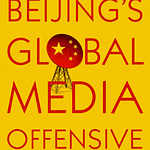
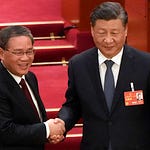
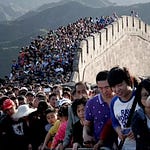



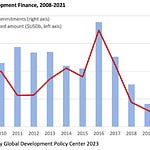
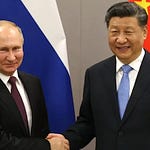
Episode 24: Where the Chinese Economy Now Stands